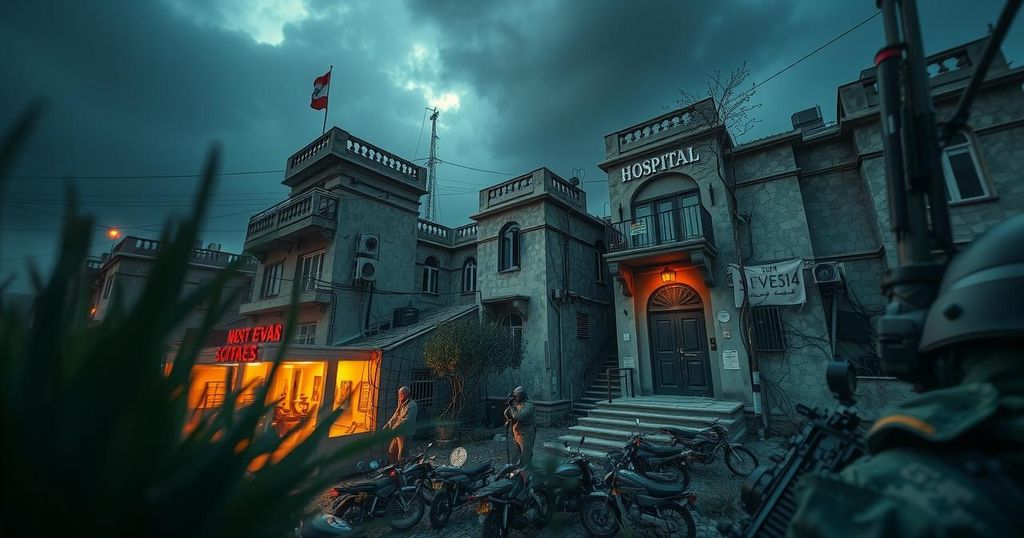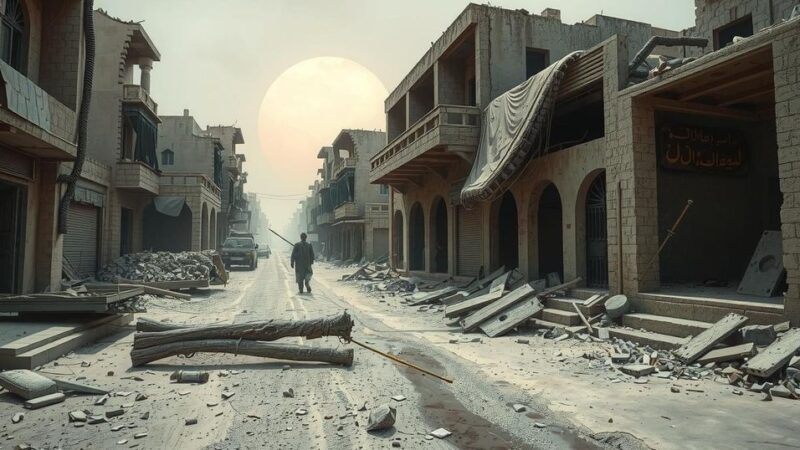Israeli airstrikes in Gaza have resulted in significant casualties, prompting calls for international intervention. Recent events include the killing of two medics in a Lebanese health facility by Israeli forces, and escalating tensions marked by missile attacks from Hezbollah. The humanitarian crisis in Gaza worsens, with 100,000 people lacking basic necessities due to the ongoing violence.
Continued hostilities in the Gaza Strip have resulted in significant casualties, with recent Israeli bombardments claiming the lives of two Palestinians in Gaza City and four in Jabalia. This escalation followed the deaths of 35 individuals during previous attacks across the region. Notably, the Palestinian Civil Defence has called for international intervention, citing severe humanitarian crises whereby approximately 100,000 people in northern Gaza are deprived of essential provisions such as food, water, and medicine due to ongoing assaults and blockades. In Lebanon, Israeli forces conducted a raid on a medical facility in the southern town of Bazouriyeh, resulting in the deaths of two paramedics. Concurrently, militant group Hezbollah reported launching missile strikes against an Israeli military base in Haifa. Additionally, the Israeli military has announced the execution of a ground raid that involved the apprehension of a Syrian citizen suspected of espionage activities for Iran, following the earlier abduction of a Lebanese national along the coast. Iranian President Masoud Pezeshkian expressed that a ceasefire by Israel could influence Iran’s response to the attacks, suggesting that cessation of violence against the region’s populace might alter the nature and scale of Iran’s retaliation. Meanwhile, Turkey has actively sought international support by submitting a letter to the United Nations, backed by 52 nations, urging an end to arms shipments to Israel, with endorsements from countries including Saudi Arabia, Brazil, Algeria, China, Iran, and Russia.
The ongoing conflict in the Middle East, particularly the escalating violence in Gaza and its neighboring regions, has deep-rooted historical and political implications. Israel’s military actions are often justified under the premise of national security, particularly in response to perceived threats from militant groups like Hamas. Conversely, such actions have led to widespread condemnation due to the humanitarian crises they generate, including the loss of civilian lives and prolonged access restrictions to basic necessities. The involvement of outside nations, such as Iran and Turkey, in advocating for peace amid these conflicts reflects the international nature of the grievances and the significant geopolitical stakes involved.
In summary, the situation in Gaza and Lebanon remains precarious, with rising casualties and a deepening humanitarian crisis. International appeals for intervention and support for ceasefires highlight the urgency of addressing these ongoing conflicts. The dynamics and responses from regional players, including Iran and Turkey, further complicate the landscape, indicating that the resolution of these confrontations will require comprehensive diplomatic efforts.
Original Source: www.aljazeera.com






